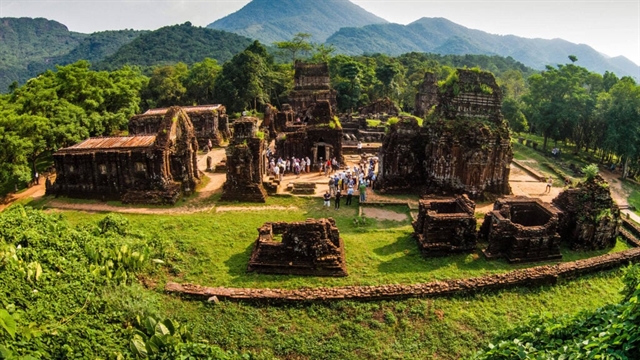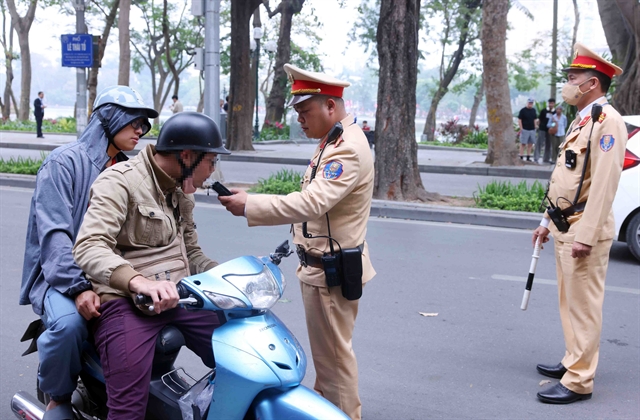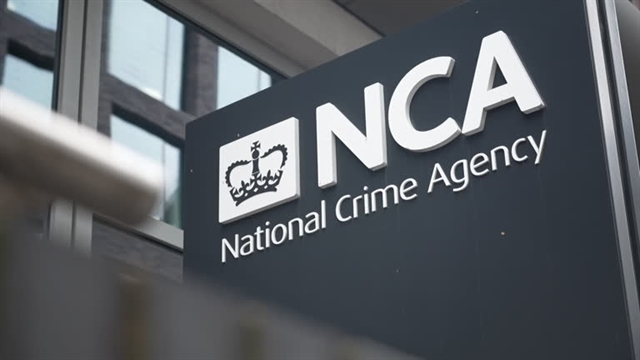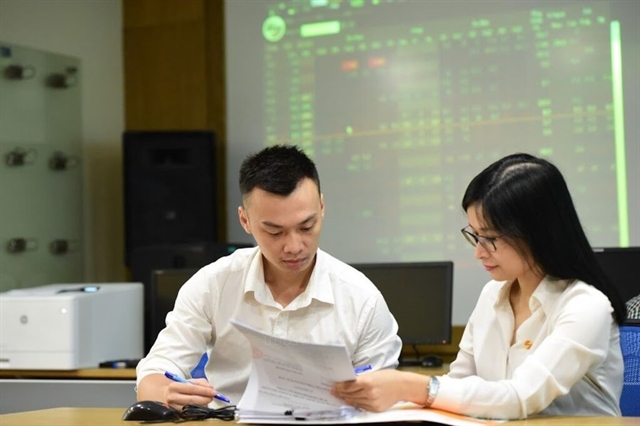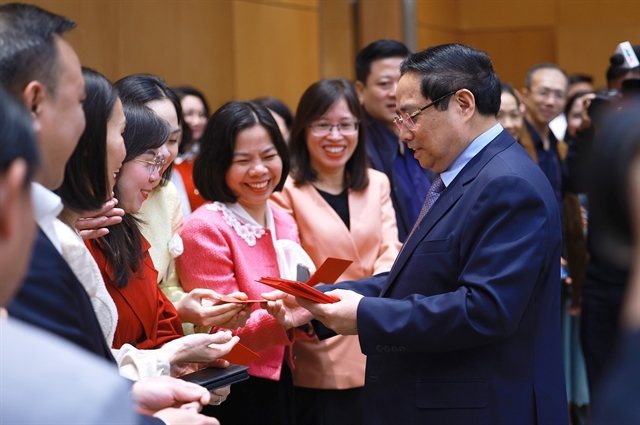 Politics & Law
Politics & Law

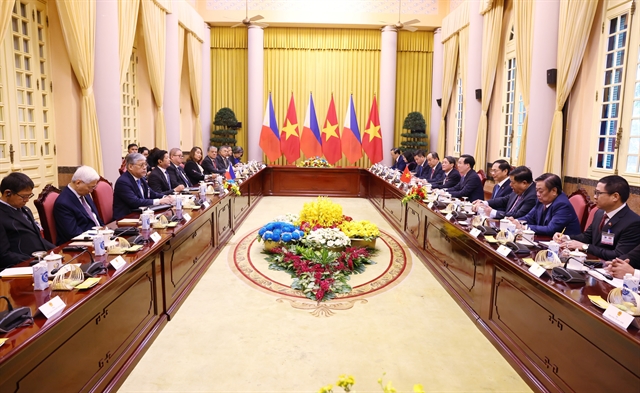 |
| President Võ Văn Thưởng held talks with his Philippine counterpart Ferdinand Romualdez Marcos Jr. on Tuesday. — VNA/VNS Photos Thống Nhất |
HÀ NỘI — President Võ Văn Thưởng on Tuesday held talks with his Philippine counterpart Ferdinand Romualdez Marcos Jr., lauding the progress of the strategic partnership between the two countries.
Việt Nam is the Philippines’ only strategic partner in ASEAN, the Philippine leader said, expressing hope that the bilateral cooperation would become even more effective and practical.
The two presidents agreed that Việt Nam-Philippines political and diplomatic relations have been strengthened through delegation exchanges as well as bilateral cooperation mechanisms.
An action plan for the strategic partnership in the 2025-30 period is also underway.
The Philippines continues to be Việt Nam’s largest rice importer.
Two-way trade turnover has witnessed a significant increase in recent years, and is aimed to reach US$10 billion by mitigating trade barriers and facilitating import-export in sectors of strengths for both countries such as seafood, fruits and vegetables.
Businesses from each country are encouraged to take advantage of regional trade agreements and invest in key sectors such as processing technology, high-tech agriculture, infrastructure and oil and gas.
They can also expand cooperation in new areas such as green and digital economy, digital transformation, renewable energy and enhancing supply chain resilience.
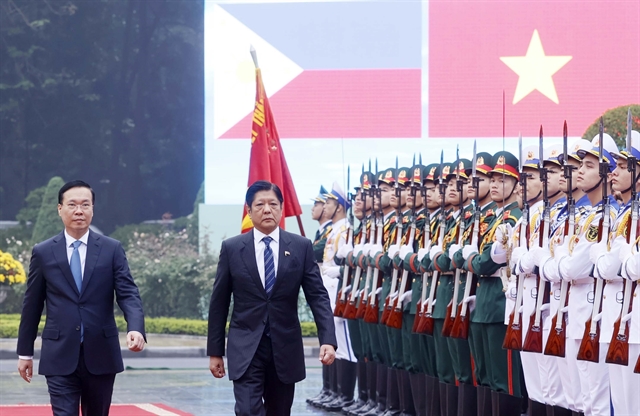 |
| The Vietnamese and Philippine presidents review the guard of honour at the official welcome ceremony in Hà Nội. |
Việt Nam and the Philippines also agreed to coordinate on climate change response, mitigating pollution and plastic waste issues and reducing carbon emissions.
President Marcos Jr. expressed his gratitude towards Việt Nam as a long-term and stable rice provider for the Philippines, praising the signing of the Memorandum of Understanding (MoU) on rice trade cooperation on the occasion of his visit.
The two leaders also agreed to promote collaboration in national security and defence, preventing transnational and high-tech crimes, while highlighting the importance of maritime cooperation.
President Thưởng suggested extending the agreement on the hotline between Vietnamese and the Philippine agricultural ministries, which facilitates information exchange on illegal, unreported and unregulated (IUU) fishing; and hoped to receive support in removing the European Commission’s “yellow card” regarding this issue.
The Vietnamese and Philippine presidents agreed to strengthen cooperation in education, culture and tourism, including opening more direct flights between the two countries, people-to-people exchanges and promoting friendship organisations for mutual understanding.
They also gave high regard to the two countries’ coordination and support to each other at international forums, and in working with other ASEAN members to maintain unity and solidarity in the bloc.
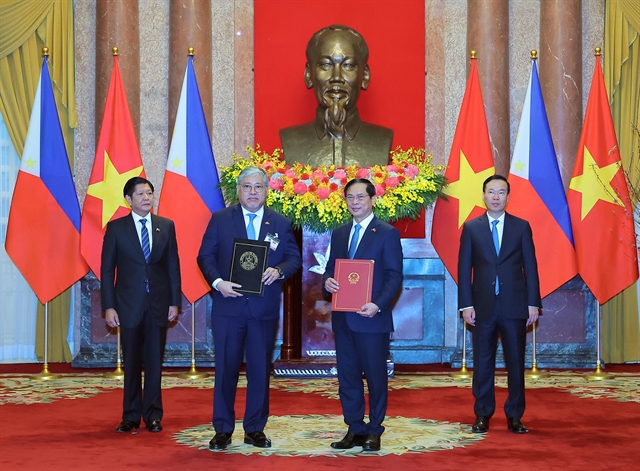 |
| President Thưởng and President Marcos Jr. witness the exchange of a Memorandum of Understanding on cooperation in prevention and management of incidents in the East Sea. |
President Marcos Jr. expressed his support for Việt Nam’s successful hosting of APEC in 2027.
Regarding the East Sea (internationally known as the South China Sea), the two countries committed to maintaining peace, security, stability, safety and freedom of navigation and aviation, calling for all parties to respect diplomatic and legal procedures, refrain from using force, and address disputes by peaceful means based on the fundamentals of international principles, especially the 1982 Convention on the Law of the Sea (UNCLOS).
A joint press release was issued following the talks, alongside the official ceremony for cooperation agreements in the fields of agriculture, rice trade, maritime cooperation and culture. — VNS

